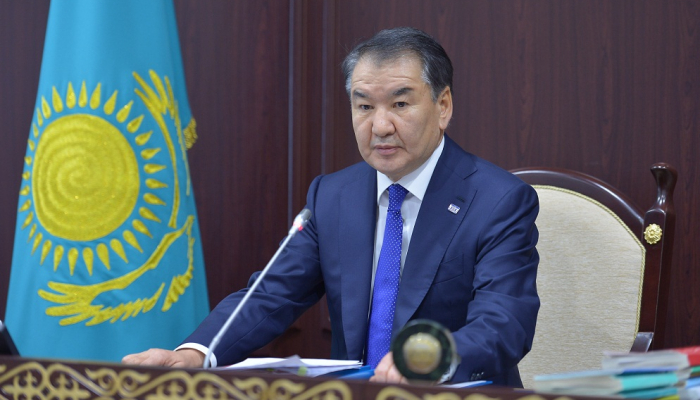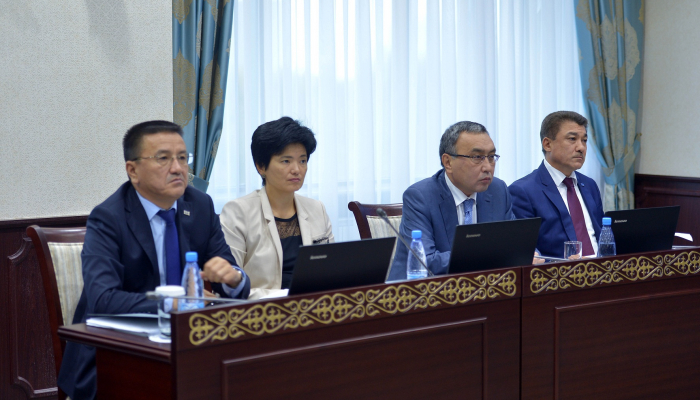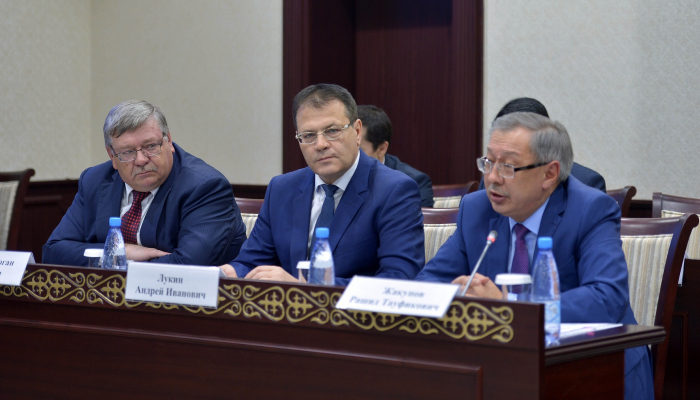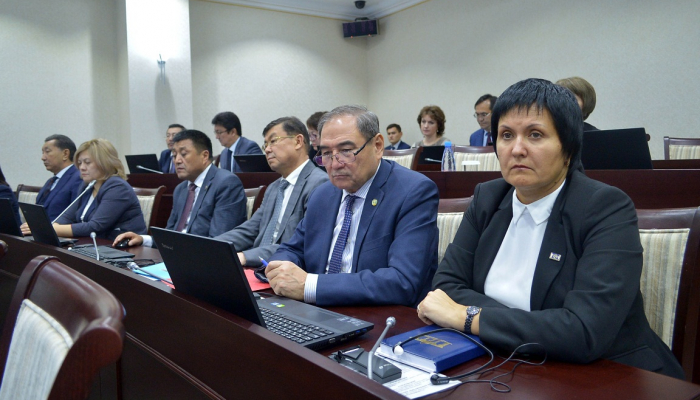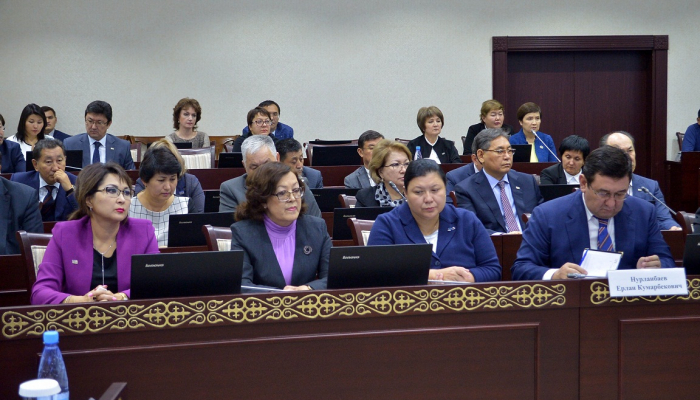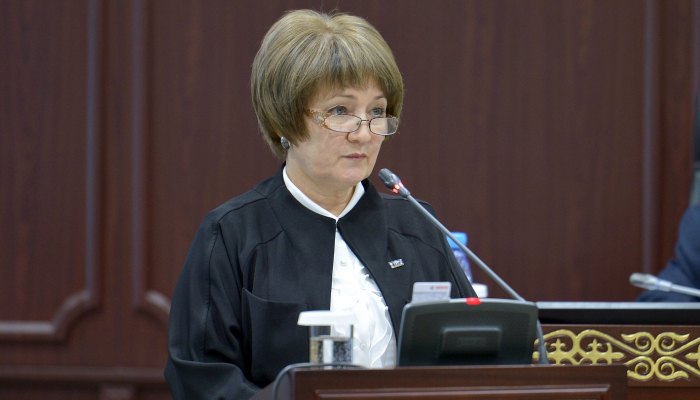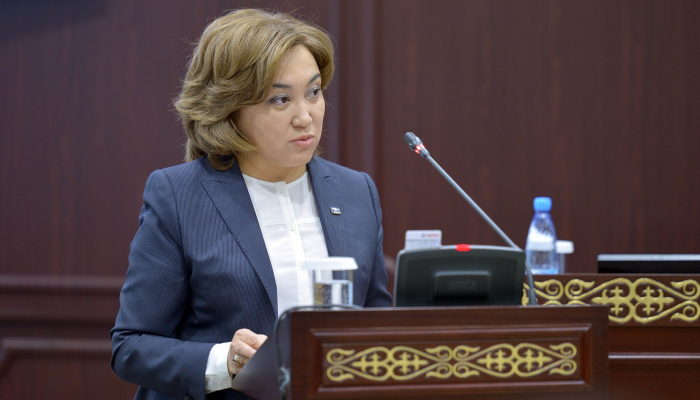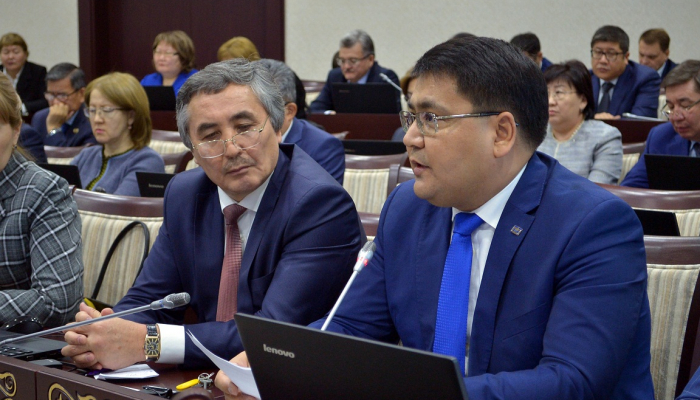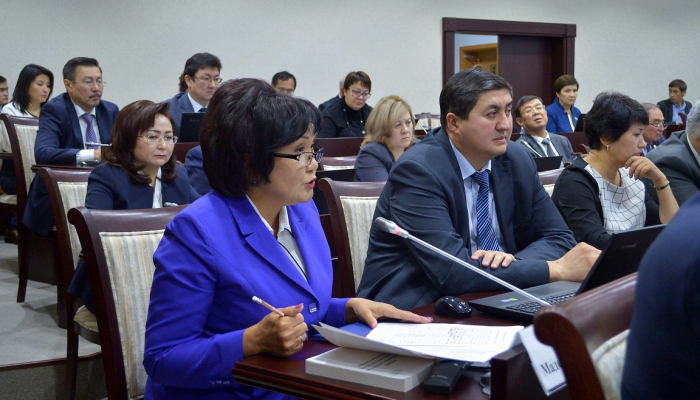Fri, 10/06/2017 - 17:13
The Chairman of the Supreme Court Kairat Mami held a regular plenary session of the highest judicial body. The event was attended by the chairmen of the judicial boards and judges of the Supreme Court, members of the scientific advisory council, the representatives of the Constitutional Council, the General Prosecutor's Office, the National Security Committee. Also there were officials from the ministries of justice, internal affairs, finance, labor and social protection, religious affairs and civil society, the National Bank and the Federation of Trade Unions.
According to the approved agenda, a number of draft normative resolutions (NR) were discussed.
Speaking about the project of the NR "On some issues of application of the norms of the Special Part of the Code of the Republic of Kazakhstan on Administrative Offenses" by the courts, the Judge of the Supreme Court Denis Shipp noted that the draft of the NR is aimed at resolving a number of problems arising in the judicial practice that arise during the consideration of cases of administrative violations in the sphere of migration legislation and on offenses on transport. The relevance of the NR is confirmed by the daily application of these norms by courts and all authorized bodies (244,550 cases of administrative offenses were considered by the courts during 9 months of this year).
The draft of the NR clarifies a number of specific points. In particular, attention is drawn to the procedure for applying disciplinary measures and calculating the time limits for the deprivation of special rights, the appointment, suspension or prohibition of the activities of an individual entrepreneur or legal entity. When qualifying the offenses in the field of migration legislation, the specifics of calculating the terms of registration of migrants, visa and visa-free stay of foreigners are specified.
Introducing the draft NR "On judicial practice in disputes arising from insurance contracts", the judge of the Supreme Court Al’fiya Savinova called insurance one of the most important economic institutions. The relevance of the NR is confirmed by the growing number of disputes of this category. The draft NR reflects the issues of judicial practice arising from insurance contracts for civil liability of owners of vehicles, tour operators and travel agents, insurance of workers against accidents in the performance of work duties, voluntary insurance contracts.
It is clarified that the general limitation period - 3 years –is applied to claims arising from insurance contracts, a joint and several liability arises if it is stipulated in the contract or established by legislative acts. The grounds on which the insurer has the right to fully or partially deny the implementation of the insurance payment are disclosed. In addition, the division of responsibilities between the tour operator and the travel agent is provided. The NR clarifies that in the field of outbound tourism, the obligation to compensate for harm caused to the interests of the tourist in the course of activities related to the formation of a tourist product the responsible will be on the tour operator, in the implementation of the promotion and sale of the tourist product - on a travel agent.
The judge of the Supreme Court Tynyshtyk Moldakhmetova noted that the draft NR "On some issues of the application of legislation by the courts in resolving labour disputes" covers the application of certain norms of the new labor legislation. The NR draws attention to giving the conciliation commission to the organizations, its branches and the representative offices the status of a permanent body that performs the function of an intermediate, but at the same time, mandatory stage in resolving individual labor disputes (ILD). The circle of employees who are exempted from applying to the conciliation commission in the case of ILD emergencies is specified. Disagreement with the decision of the conciliation commission or its non-fulfillment gives the party of the ILD the right to apply to court for judicial protection. At the same time, the court is not connected with the conclusions of the conciliation commission and the ILD is allowed in essence within the limits of the claims stated by the plaintiff.
The NR clarifies the grounds and procedure for the termination of the employment contract due to a decrease in the volume of production, which led to deterioration in the economic status of the employer. Attention is drawn to the fact that in order to attract employees to full financial responsibility, labor legislation does not always require a financial liability agreement. For the first time the recommendations have been fixed for extending the term of the employment contract with pregnant women and workers with children under three years of age, which are recommended for use when considering ILD in the NR.
Following the discussion of draft normative resolutions, the participants of the plenary session made a number of proposals and remarks in them. Finally, they will be approved by the plenary session after their editorial revision.
Related materials
- Supreme Court improves methodology for drawing up judicial acts on criminal and administrative cases
- A Memorandum of understanding was signed between the Department of the Supreme Court and the Organization for Security and Co-operation in Europe Programme Office in Nur-Sultan
- Meetings with the OSCE Representative on Freedom of the Media in the Supreme Court

